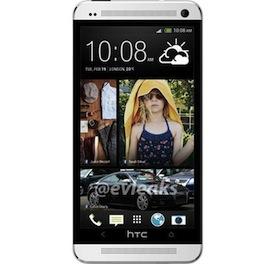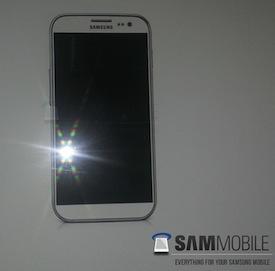
If BlackBerry's time to attract attention in the world's most important market wasn't yesterday, it surely isn't in March either. It's looking nearly impossible for BlackBerry to steal the spotlight away from any of the big names in mobile over the next few months. As we edge closer to the rumored mid-March release slot of the BlackBerry Q10 and Z10 in the States, I can't help but think the success of BlackBerry's reception will be determined by their rival's press events.
So much for the BlackBerry offensive.
The success or failure of BB10 in the States will be extremely obvious once it arrives at the major wireless carriers next month. Until then, doubt and speculation are the last things the Waterloo-based company needs. It should be no surprise to BlackBerry that they will have serious competition this year. To put it simply, some of the biggest announcements of the year are set to take place in the coming months. Even the degree of Apple's success in 2013 will be affected by what HTC, Samsung, and Mobile World Congress put on the table.
And in terms of sheer brand relevance, it's looking like a losing battle before BlackBerry even enters the ring.
HTC is first up to bat and boy, do they have something to prove. Just watch this video recorded at HTC's 2012 Year End Party. Is this what really happens in Taiwan? Or worse, is this normal? Regardless, this is not what BlackBerry's CEO Thorstein Heins wants to see. The image below was posted by the famous @evleaks yesterday.


The HTC M7 (or simply the "One" if you believe the rumors) will garner much attention with its extremely dense 4.7-inch 1080p display, quad-core 1.7GHz processor, 2GB of RAM, and a 4.3-ultrapixel camera. To top it off, Beats Audio, Android 4.2 Jelly Bean, and HTC's latest Sense 5 are expected to be on-board as well. Rumor has it that the HTC M7 will peek from behind the curtain in London and New York next week on February 19th with a launch date in the first few weeks of March...alongside BlackBerry's handsets.
As if HTC's announcement wasn't worrying enough, Samsung will be plotting to steal their thunder with the hotly-anticipated Galaxy S IV.
The Exynos 5 Octa processor, 5-inch Super AMOLED Full HD Resolution display, 2GB of RAM, 13MP camera, and Android 4.2 Jelly Bean are expected to be in on-board Samsung's new flagship. So, if specifications attract you, the Galaxy S IV will have no rival the first half of 2013. Rumors suggest it will be announced mid-March and ship to customers beginning in April...just after BlackBerry's handsets.
Talk about running before you learn to walk, BlackBerry.
Now, before you say "you're a biased Android fanboy," imagine BlackBerry's best scenario.
Their handsets sell very well in the states (figure between 2 and 4-million handsets). This is assuming BlackBerry does not face supply issues like they did in the U.K. Then, BlackBerry does some marketing. Some real marketing. The type that shows consumers benefits, not what BB10 can't do. If they can convince consumers the Q10 and Z10 are viable alternatives to Android's best while competitors announce their new hero devices, this would be cause for celebration back at BlackBerry HQ.
But chances are, BlackBerry won't win hearts over HTC and Samsung's new flagships. So, let's say BlackBerry is a fast learner and markets their OS to their smaller competitors: iOS and Windows Phone. Of course, this is assuming Nokia doesn't attract too much attention with the rumors of the Lumia 1000, Lumia 720, and Lumia 520 at Mobile World Congress later this month.
This leaves Apple. The tale of two fruit companies with vastly different operating systems and priorities could be set to go head-to-head while Android and maybe even Windows Phone steal BB10's thunder. Yet it's likely Apple won't let Android run away with the spotlight as the rumors of multiple iPhones start to appear around the web in the coming months.
So, from BlackBerry's position, they'd be lucky if consumers even noticed their handsets after the announcements scheduled in the coming months. As I've said before, BlackBerry's best bet is to hunt for the wounded. Apple may look vulnerable while they're absent with announcements over the next few months but Windows Phone's quiet third place in the mobile operating system market could be the easiest target for BlackBerry. They might not admit it but Microsoft's presence in mobile is vulnerable.
The question is: will BlackBerry be able to get their marketing team straightened out to position themselves as an alternative at all? Only their competitors know the answer.
BlackBerry's reception in the U.S. depends on competitor announcements next month. And for the time being, they're forced to sit back and wait just like the rest of us while nearly everyone announces their newest flagship devices for 2013.
What do you think about BlackBerry's imminent U.S. launch? Are they late to the party they started? Do they stand a chance? If you had to choose, which operating system should BlackBerry target going into the coming months? Let me know your thoughts in the comments below.